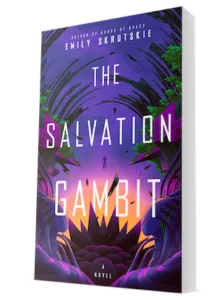
20 Must-Read Sci-Fi Novels about AI
The world is getting increasingly saturated with artificial intelligence. What was once pure science fiction is becoming increasingly a threatening part of our lives. Studios are threatening to take scans of actors that they can use in perpetuity. People are submitting AI-generated stories to literary magazines. People are both disdaining and pouring their own information into chat AIs, art-generating AIs, and more. Our devices, browsers, and algorithms are making more and more decisions on their own, and we can’t always tell how much is based on our own interests and preferences and how much is based on what corporations want us to see.
In this AI-soaked world, a lot of readers are being drawn to a science fiction genre in itself: books about AI. About sentient life. About what it could mean when a computer can mimic humanity. About how we’ll cope when and if AI achieves full sentience, and about what it will mean for our laws, interactions, and everyday life if they do.
The following 20 novels, novellas, and short stories are absolute must-reads of the genre. They include both classics and new releases you might not have picked up yet. They include both space operas and character studies, stories zoomed-out and zoomed-in. Humans compete against, meet, question, befriend, and fight the AIs in these stories—and in some of them, the AI in question is the main character. Dig into these 20 must-reads about AI—and enjoy!
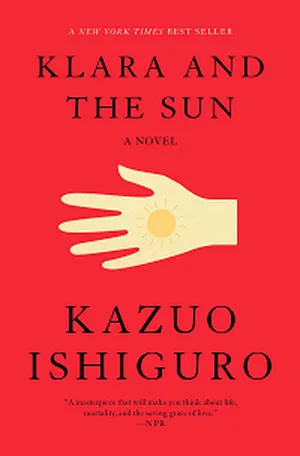
Klara and the Sun by Kazuo Ishiguro
A small Artificial Friend is purchased and assigned to a young, sickly girl named Josie in a wealthy family. As Klara cares for her and gets to know the family, she starts to ponder not only her own existence but also what it means to survive, forming her own spirituality and love for the world. As she gets used to the world she’s entered—a rich community defined by those who are Lifted and those who are not—she begins to realize that Josie’s mother has a sinister plan of her own that may or may not line up with what’s best for Josie. This was the first novel Kazuo Ishiguro released after winning the Nobel Prize for Literature, and it’s one of his absolute best.
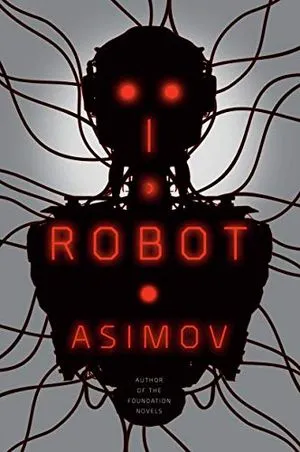
I, Robot by Isaac Asimov
Obviously, this novel had to be included. Isaac Asimov asked the crucial questions about robots and AI that we’re still asking today. When do we decide that robots are sentient? If they become sentient, is it acceptable that they’re enslaved to us? If they become sentient, can they feel emotion? For the record, the movie featuring Will Smith has very little to do with this book except in its fundamental questions about AI. In a series of stories and scenarios, Asimov picks apart what it could mean to truly bring robots to life.
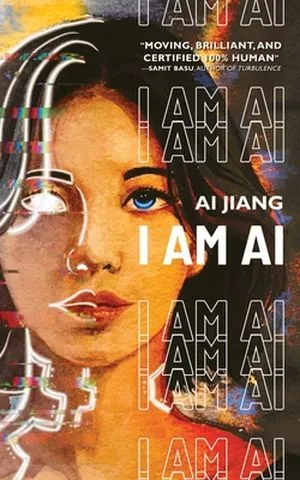
I am AI by Ai Jiang
As debates about AI and creativity rage, this novelette looks more and more interesting—and upsettingly prescient. Ai lives in a bleak capitalist dystopia where she struggles to keep up and make a living as a writer because AI is churning out easy content, and she can’t compete. She’s doing everything she can to compete though—she’s been slowly replacing her own body parts with machine parts to try and grind out a more productive schedule, to try and keep up. But will any amount of cyborg additions really be enough?
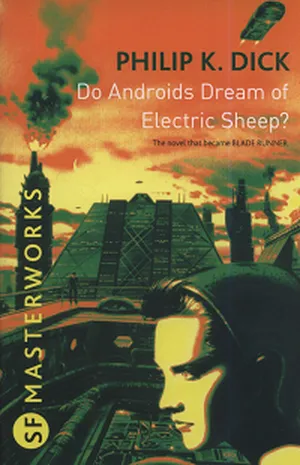
Do Androids Dream of Electric Sheep? by Philip K. Dick
This absolute classic of science fiction, which would go on to inspire Blade Runner, features a dystopian earth haunted by the detritus of World War Terminus and climate damage. Protagonist Rick Deckard is a bounty hunter tasked with hunting for androids in this grimy futuristic San Francisco. The androids have escaped their servitude on Mars to try and blend in and live among humans, and now Deckard has to find them—while dealing with the troubling questions of just how human these androids might be.
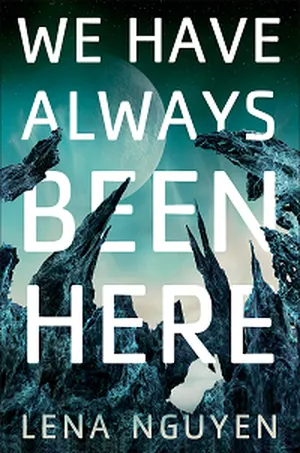
We Have Always Been Here by Lena Nguyen
Psychologist Grace Park’s assignment is to watch the humans on this ship and make sure they stay sound and healthy as their ship explores a far-off planet to figure out whether it will be a reasonable place to form a colony. The problem? Dr. Park gets along better with the androids, and the androids make the rest of the crew anxious. When the team is trapped inside due to a raging storm, tensions start to crack, and bad feelings brim over. With both humans and androids acting strangely, Dr. Park has a mystery to solve about what’s happening on this planet—and she doesn’t have much time.
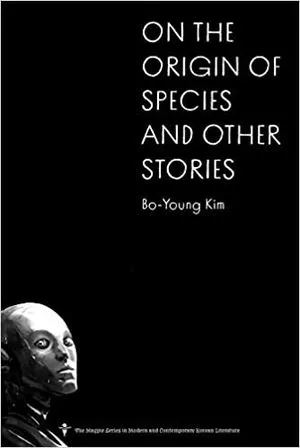
How Alike Are We by Bo-Young Kim, translated by Jihyun Park and Gord Sellar
In this novella published in Clarkesworld Magazine, a ship turns off course to help with an emergency on Jupiter’s moon, Titan. The problem? The AI on the ship won’t let them land until it gets what it wants: a human body. But when, in frustration, they do what it wants, it’s only to find that the downloaded AI doesn’t know what’s happening—and isn’t able to process information to tell them the codes they need. The AI has to make tough decisions about how much emotion they want and need in this story by an iconic South Korean sci-fi author. (For more from her, check out On the Origin of Species and Other Stories, translated by Joungmin Lee Comfort and Sora Kim-Russell.)
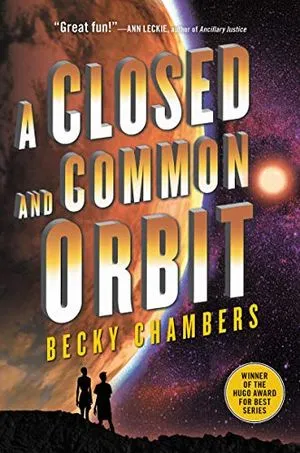
A Closed and Common Orbit by Becky Chambers
Lovelace wakes up after a hard reset to find herself in a new body. Formerly an AI software on a spaceship, she now occupies a human-like body. After changing her name, she sets out to decide who she is now and navigate her new life beside an engineer and mechanic named Pepper. The new life isn’t easy. She once commanded all kinds of ancillary systems that helped her work, see, and now she has to figure out how to live undetected in a human world. Like many of Becky Chambers’s works, it’s a cozy sci-fi tale focused on the characters.
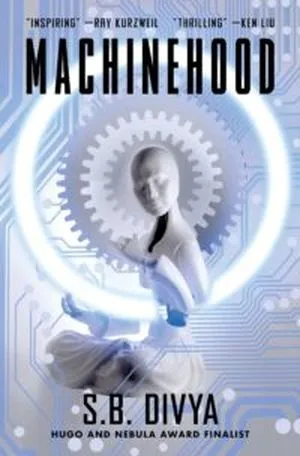
Machinehood by S.B. Divya
The 2095 landscape is competitive and intensely capitalist, but at least people tend to live a long time—healthcare is good and violence is rare. Welga wants to retire soon. Except her client is murdered by a terrorist group made up of part-machine part-human creatures who are demanding that humans destroy the pills that are keeping them alive. This book looks at AI, sure, but it also asks questions about the demand for productivity and the brutality of a society that sees its citizens as just sources of endless labor.
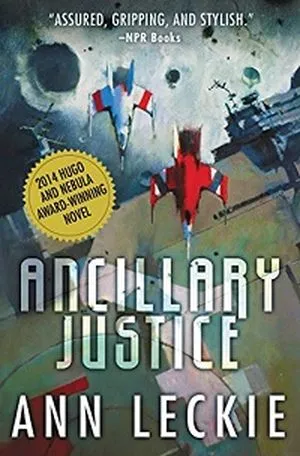
Ancillary Justice by Ann Leckie
Breq is just a piece of the ship Justice of Toren, but after a brutal act, her hive mind and abilities have been torn away. She’s all alone now, in a single body, and all she knows is that she wants revenge. She and Seivarden, a soldier mistakenly frozen for centuries, embark on an epic adventure in an otherworldly space drama that asks impossible questions about the feelings and consciousness of an AI as advanced as Breq is. As their world is crunched into bitter battle, Breq and the old soldier are on a big adventure to recapture something of themselves.
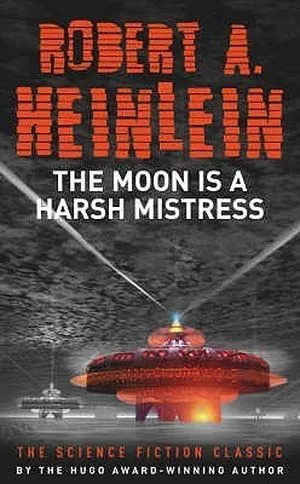
The Moon Is a Harsh Mistress by Robert A. Heinlein
A former Lunar penal colony, a world ruled by anarchy, becomes a functioning society of its own, separate from Earth’s rigid control. But first, there had to be a revolution. A computer technician looks back on the war (based on the American Revolution) that won the moon its freedom and reflects on all of its players. The book (published in 1966) was one of the early wave of sci-fi books that were interested in sentient computers—at the revolution’s core is Mike, a supercomputer who is secretly the key to the revolution’s success.
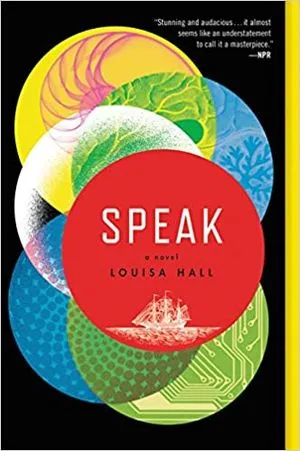
Speak by Louisa Hall
The babybots are sweeping the nation…until they’re causing havoc instead, breaking people’s connections with each other as they get too close to something that’s life-like but not actually alive. In this meditative novel, Hall connects five different narratives to twist together a story about what it means to forge connection with other beings—whether human or artificial intelligence. Alan Turing, a computer scientist, and a young girl growing up, all feature as protagonists.
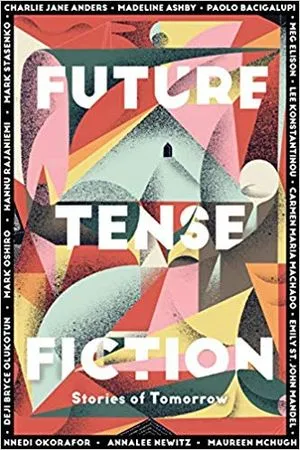
“Mother of Invention” by Nnedi Okorafor
This story, in Future Tense Fiction: Stories of Tomorrow, is one of my favorite AI stories. A pregnant woman is absolutely tormented by her allergies to lab-made periwinkle grass. The doctors have told her that she should move, but the AI-controlled smart house she lives in is the last thing she has from the ex-boyfriend who abandoned her when he found out she was pregnant, and she worries she’ll lose everything if she leaves. As a pollen tsunami approaches, the house (Obi 3) tries to reassure her; it quietly makes fixes, trying to fortify itself against everything and anything.
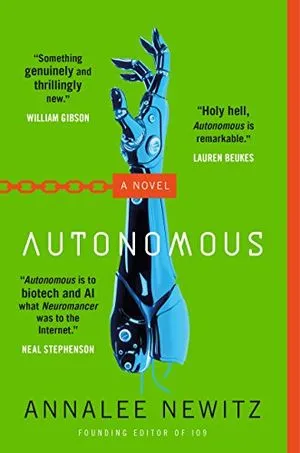
Autonomous by Annalee Newitz
In a rigid world ruled by fierce capitalism and Big Pharma, a scientist named Jack has gone rogue. She’s an anti-patent scientist who distributes regulated drugs to the poor, but her most recent is causing overdoses, and she has to fix the damage. Agent Eliasz and robot Paladin are sent out to take Jack down—but to their surprise, they have a mess of feelings and questions to face in their future. The fast-moving plot makes it a hard book to put down, even as it asks genuinely tough questions about autonomy, robots, and what it means to be enslaved in a capitalist society.
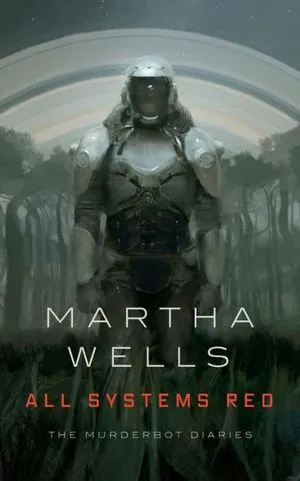
All Systems Red by Martha Wells
The Murderbot series has become a quick sci-fi favorite for so, so many readers—and for good reason. The snarky robot who managed to reprogram itself to only obey its own orders, who prefers to watch its favorite TV dramas rather than be bothered to protect actual humans in the messy outside world, is a treasure. These books are funny but also desperately dramatic novellas that rush by in action-packed plots and manage to find time somehow to explore complicated questions of autonomy as Murderbot decides who it is and who it wants to be.
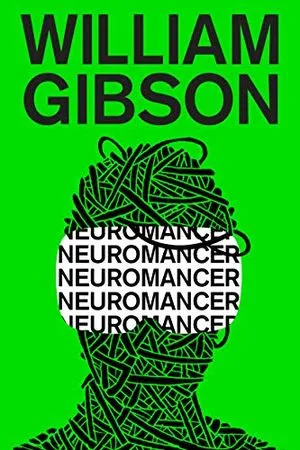
Neuromancer by William Gibson
Henry Dorsett Case is hurting. Infected with a mycotoxin that keeps him from jumping into cyberspace, he’s desperate to get in. But Molly Millions shows up and tells him they have a job for him: if he hacks an AI orbiting Earth owned by a group of sinister businessmen, they’ll cure him. This book is famously a hard-to-follow read that’s worth the commitment, a foundational book to the genre of cyberpunk, not to mention to a generation of digital-inspired, gritty sci-fi (including the makers of The Matrix).
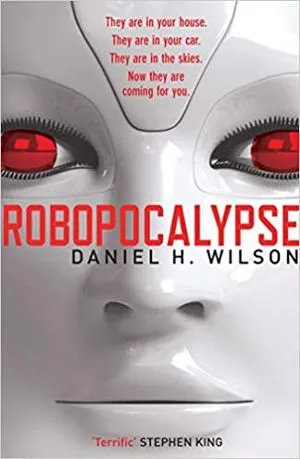
Robopocalypse by Daniel H. Wilson
For fans of World War Z’s episodic structure, this book depicts the robot uprising ushered in by a powerful AI named Archos, who uses the guise of a child to communicate. We track the revolt from the first small little glitches in technology all the way to Zero Hour, the moment when everything erupts into a full-on battle. It’s an epic, fun romp through the end of the world for humanity and a look at what might follow the world we know—a thriller with intensely plausible science thanks to Wilson’s PhD in Robotics.

The Infinity Particle by Wendy Xu
Wendy Xu is an incredibly talented graphic novelist (you might know her from Mooncakes), and in this work, she tackles AI and autonomy. Clementine is on top of the world. After moving to Mars, she gets her dream gig under one of the absolute pioneers of artificial intelligence—what could be better? But then she starts to develop feelings for Dr. Lin’s AI assistant, and things get…complicated. Dr. Lin doesn’t think her assistant should have any kind of independence. But does Clementine agree? And if she doesn’t, what is she willing to risk to break him free?
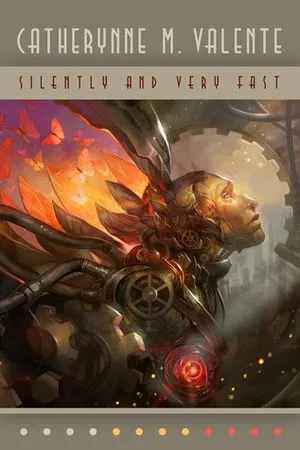
Silently and Very Fast by Catherynne M. Valente
Do robots have their own folklore? Neva’s great-great-grandmother launched a computer revolution. But ever since, she and her family have been “haunted” in their dreams by Elefsis, an AI that also happens to run their family home. As Neva and Elefsis explore and communicate and share stories, they start to unpack new discoveries about AI and what it is—and what it might want to be. This poetic novella won the Hugo Award, and it was well-deserved—Valente explores connection, AI, and what sentience might look like.
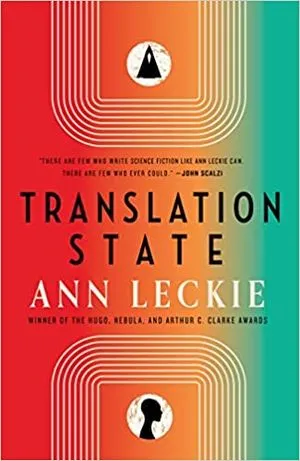
Translation State by Ann Leckie
This wild standalone from Ann Leckie has everything—trippy interdimensional travel, an AI of sorts who insists they’re human, and a mystery to solve. After Enae’s grandmother dies, she’s given a mystery to solve. No one expects her to do so, but she’s used to keeping busy. Little does she know that her attempt to find a missing person from generations ago will set off a dangerous stand-off that could put an upcoming vital treaty at risk. At the core of this story is Qven, who was created purely to be a translator, an intermediary between dangerous aliens and humans, but who wants something different—and is determined to find an alternative to the fate they were “made” for.
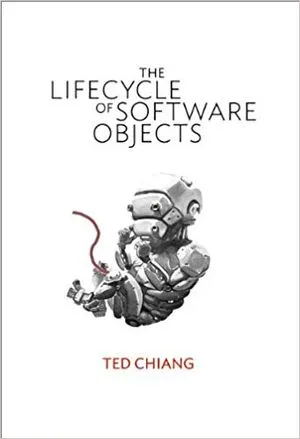
The Lifecycle of Software Objects by Ted Chiang
Ted Chiang wants to know how AIs are born. In this Hugo and Locus award-winning novella, digients or digital entities become a global fad—only to be abandoned when people move on to the next thing. But a remaining few stick with the digients. What would our attitude be towards a creature that we can technically just “restart” when something goes wrong? The system is easily abused in this novella that’s equal parts exploration of AI and metaphorical examination of what it means to raise a child.
Want more sci-fi recommendations? Check out our recent list of 10 transhumanist sci-fi books to pick up, our list of “dying earth” books, or my list of 9 feminist science-fiction dystopia novels that you simply have to read.



